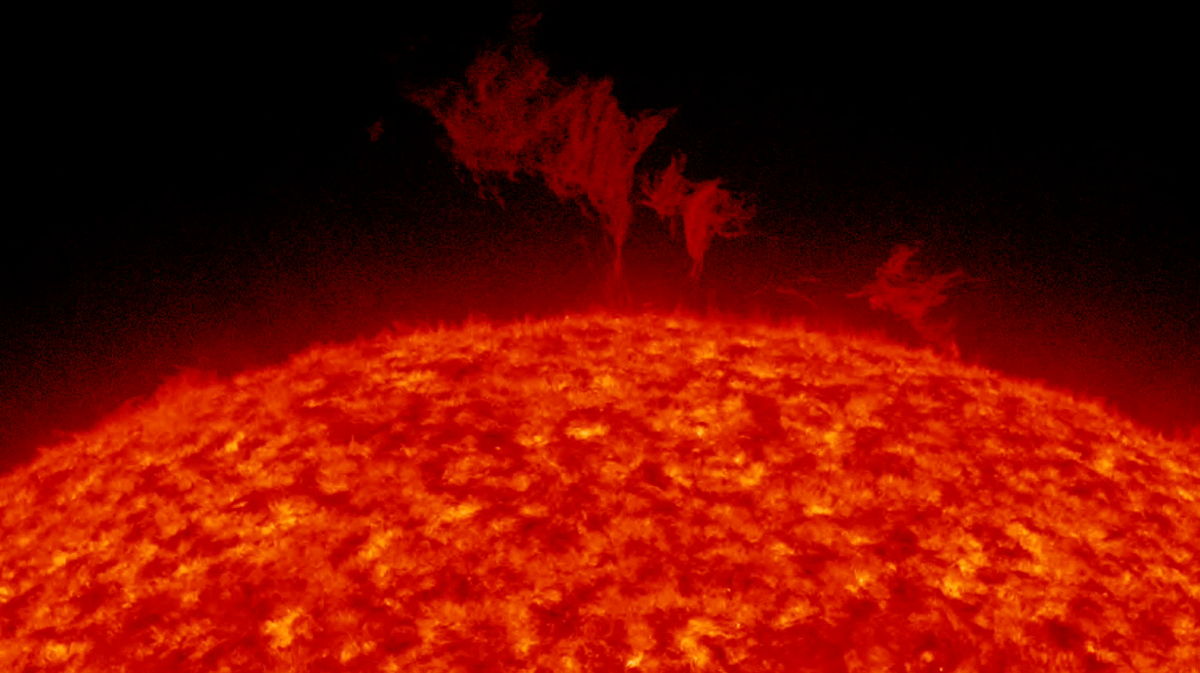Image of the Day 2024 Archive
Explore our Image of the Day 2024 Archives!
A bright galaxy devours its neighbors
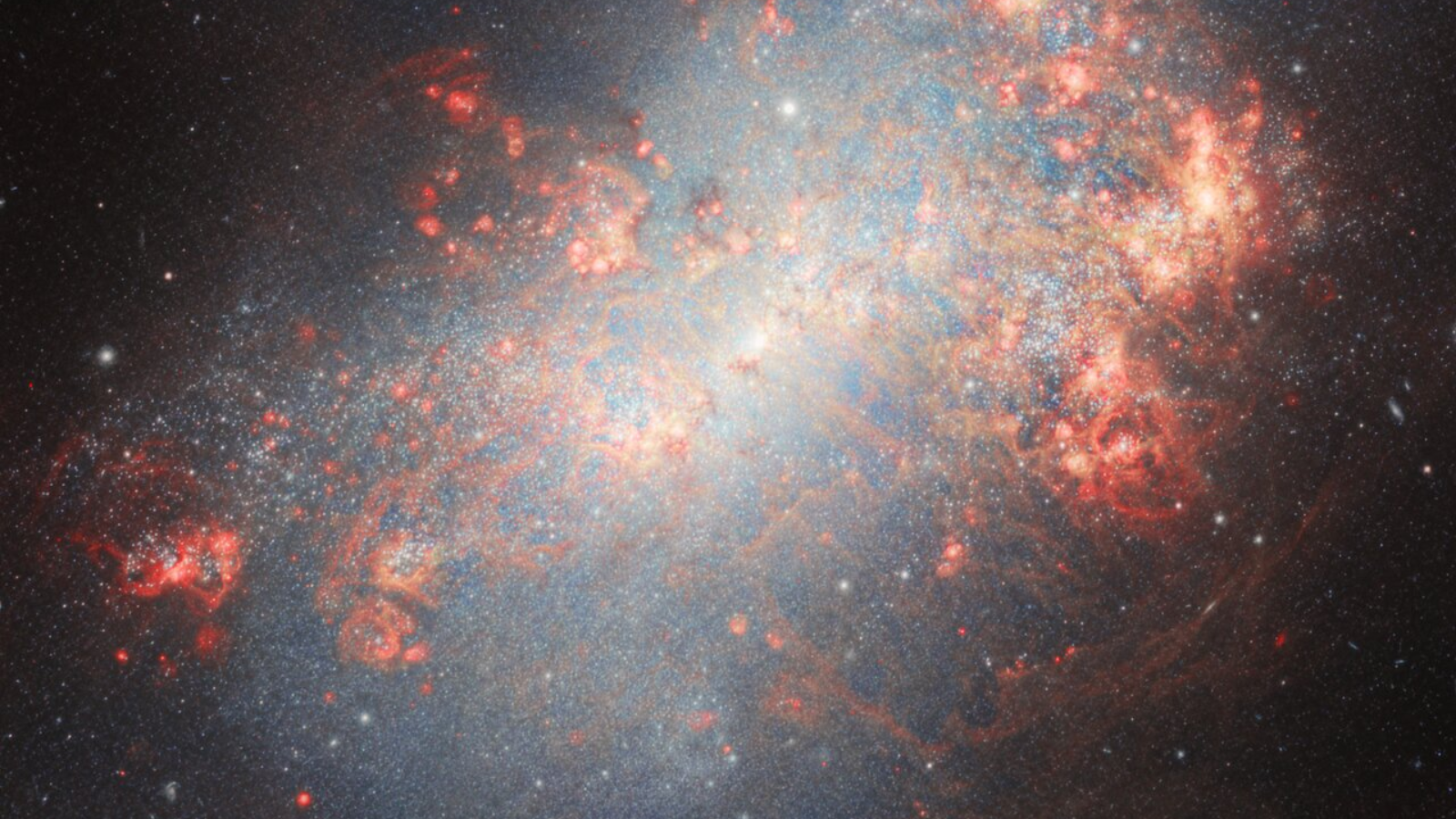
Thursday, June 27: A starburst galaxy, glowing with infant stars in the process of being formed, can be seen as it consumes dwarf galaxies surrounding it in a breathtaking new image from the twin Gemini North telescopes.
This new image of the galaxy, known as NCG 4449, was released to celebrate 25 years of Gemini North, an 8.1-meter diameter optical and infrared telescope located at an altitude of around 13,825 feet (4,214 meters) on the dormant volcano Maunakea in Hawaii.
Related: See a starburst galaxy, ablaze with explosive star birth, devouring dwarf galaxies (video)
Double Falcon 9 booster landing at Kennedy Space Center
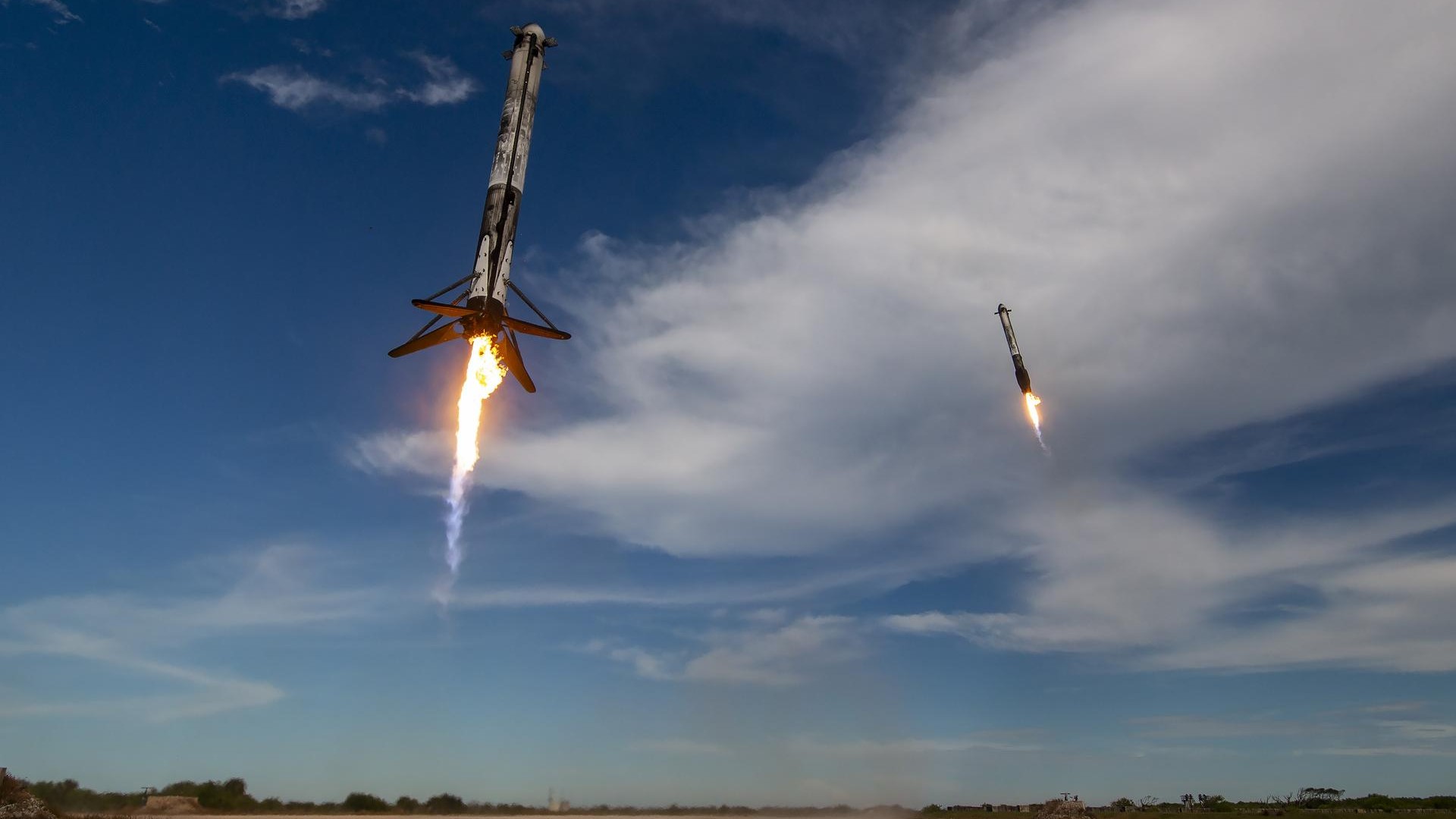
Wednesday, June 26, 2024: A SpaceX Falcon Heavy rocket launched the U.S. National Oceanographic and Atmospheric Administration's (NOAA) powerful new GOES-U weather satellite on June 25, 2024. Following the launch, the rocket's two Falcon 9 boosters made a simultaneous landing at Landing Zone 1 at NASA's Kennedy Space Center, accompanied by a double sonic boom.
Read more: Watch GOES-U weather satellite float above a brightly shining Earth in stunning video from space
Stunning Hubble galaxy
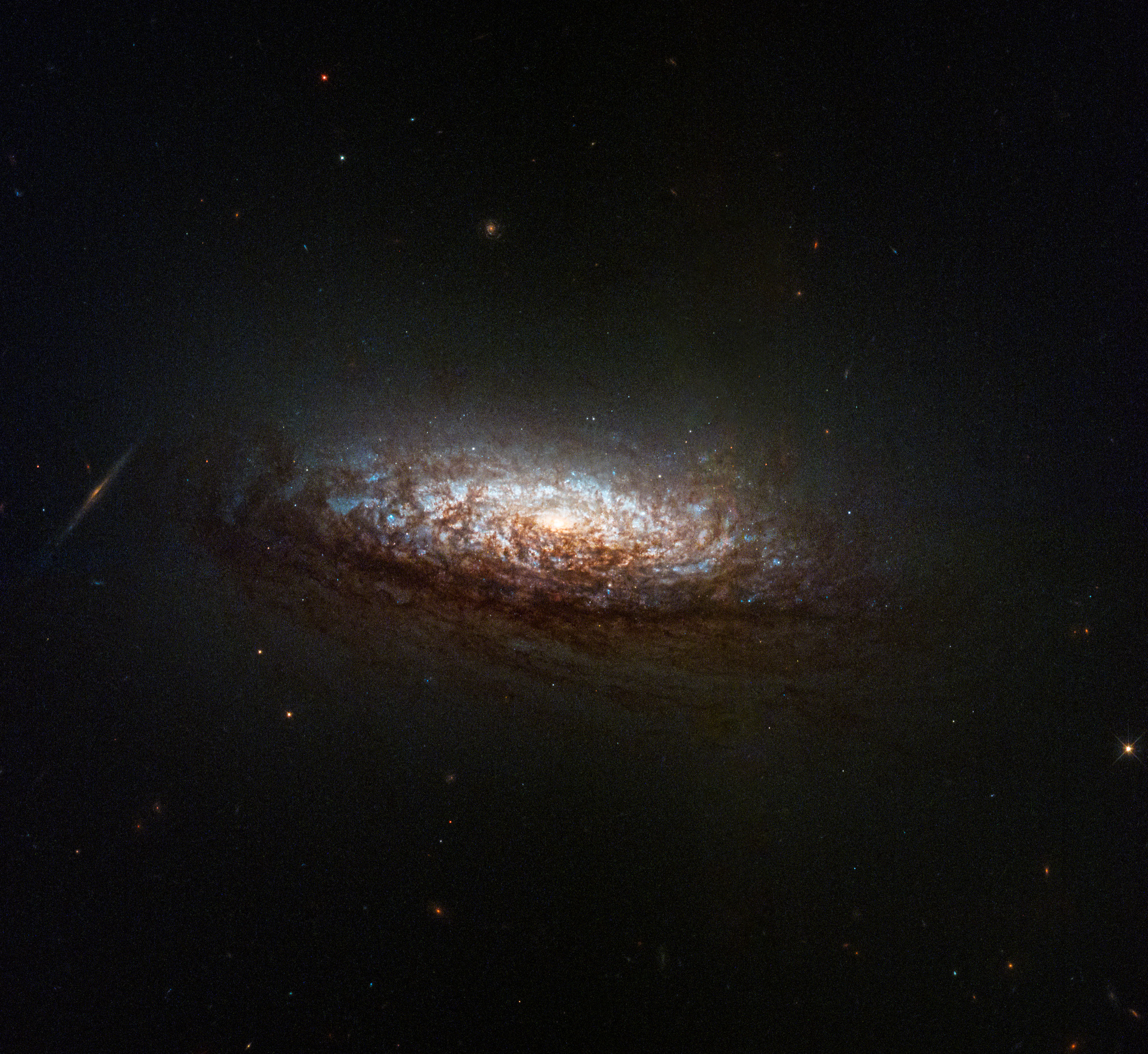
Thursday, June 20, 2024: The Hubble Space Telescope is back in action, having returned to science operations but now with just one operating gyroscope. And to prove it's still got what it takes, the venerable observatory snapped a striking photo of the dusty spiral galaxy NGC 1546. — Keith Cooper
Read more: Hubble Telescope bounces back with glorious galaxy pic in '1-gyroscope mode'
Get the Space.com Newsletter
Breaking space news, the latest updates on rocket launches, skywatching events and more!
The Crab's claws
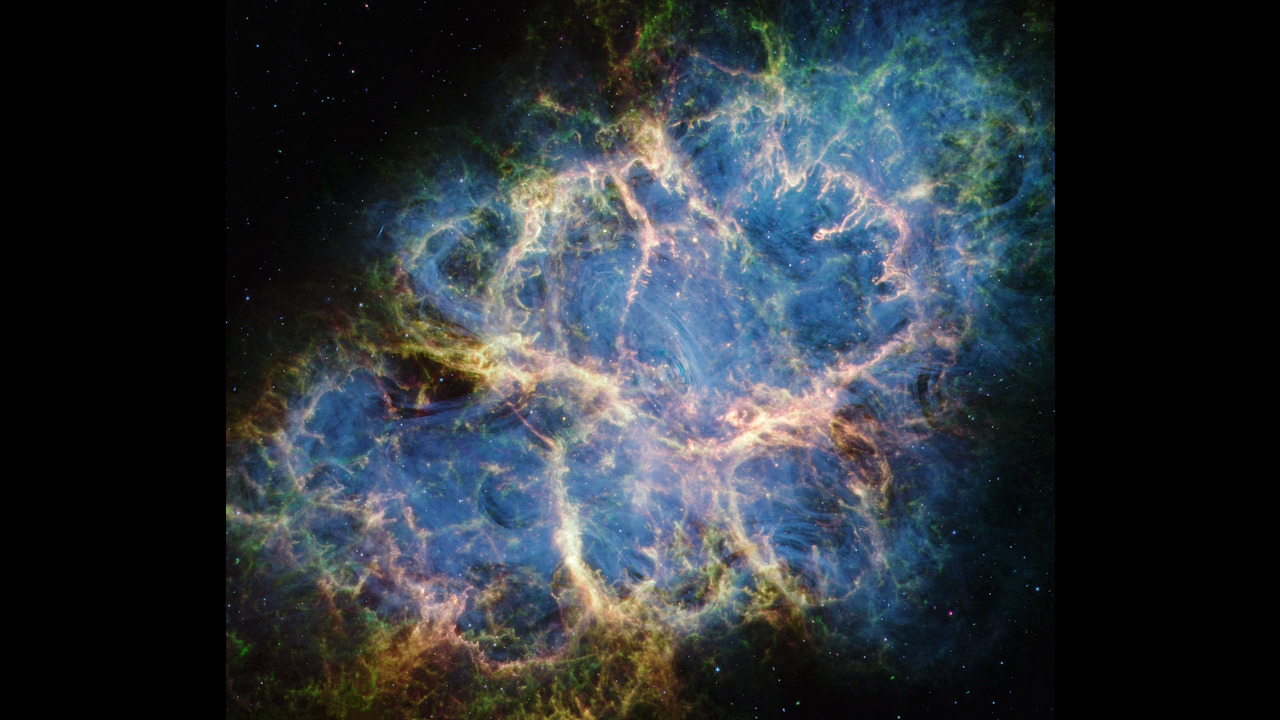
Tuesday, June 18, 2024: A new mosaic of the Crab Nebula by the mighty James Webb Space Telescope traces its "claws" in fresh, exquisite detail. For the first time, we are able to see the cage-like structures formed by countless dust grains, seen particularly prominently as fluffy magenta material in the upper right and lower left regions in Webb's image of the nebula. — Sharmila Kuthunur
Starliner seen docked at the International Space Station
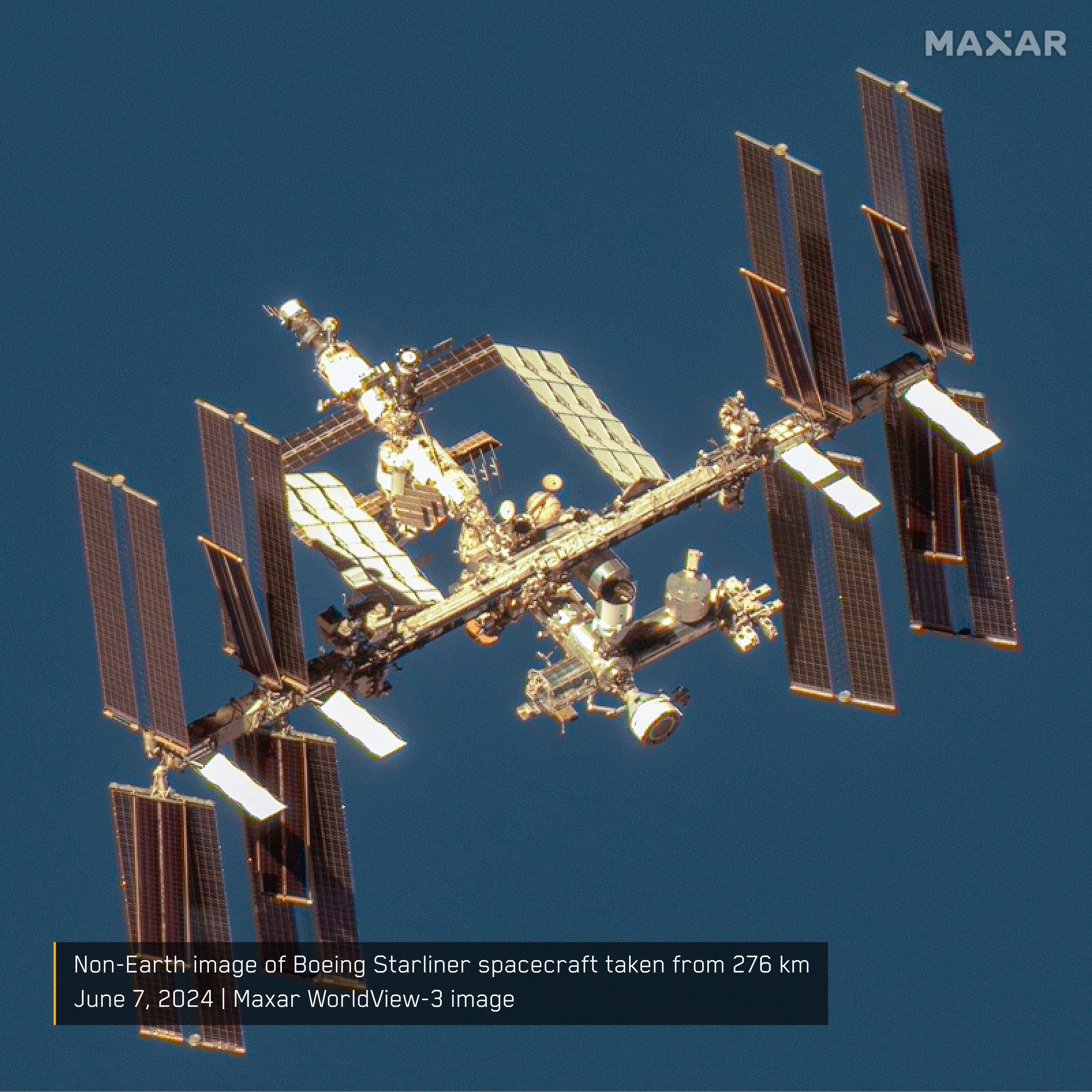
Thursday, June 13, 2024: Boeing's Starliner spacecraft launched for the first time with crew aboard June 5, carrying NASA astronauts Butch Wilmore and Suni Williams to the International Space Station (ISS). During their brief stay aboard the orbital laboratory, Maxar Technologies' WorldView-3 satellite managed to zoom way in to spot the ISS hanging above the earth. In addition to the Starliner capsule, nearly all the ISS modules are clearly visible, as well as the station's new upgraded solar panels.
Touting their imaging capabilities, Maxar Technologies shared this amazing photo in a social media post Wednesday, saying, "this type of imagery collection, known as non-Earth imaging (NEI), is a breakthrough capability that enables Maxar to support critical space domain awareness missions for government and commercial customers."
Koi fish for the stars
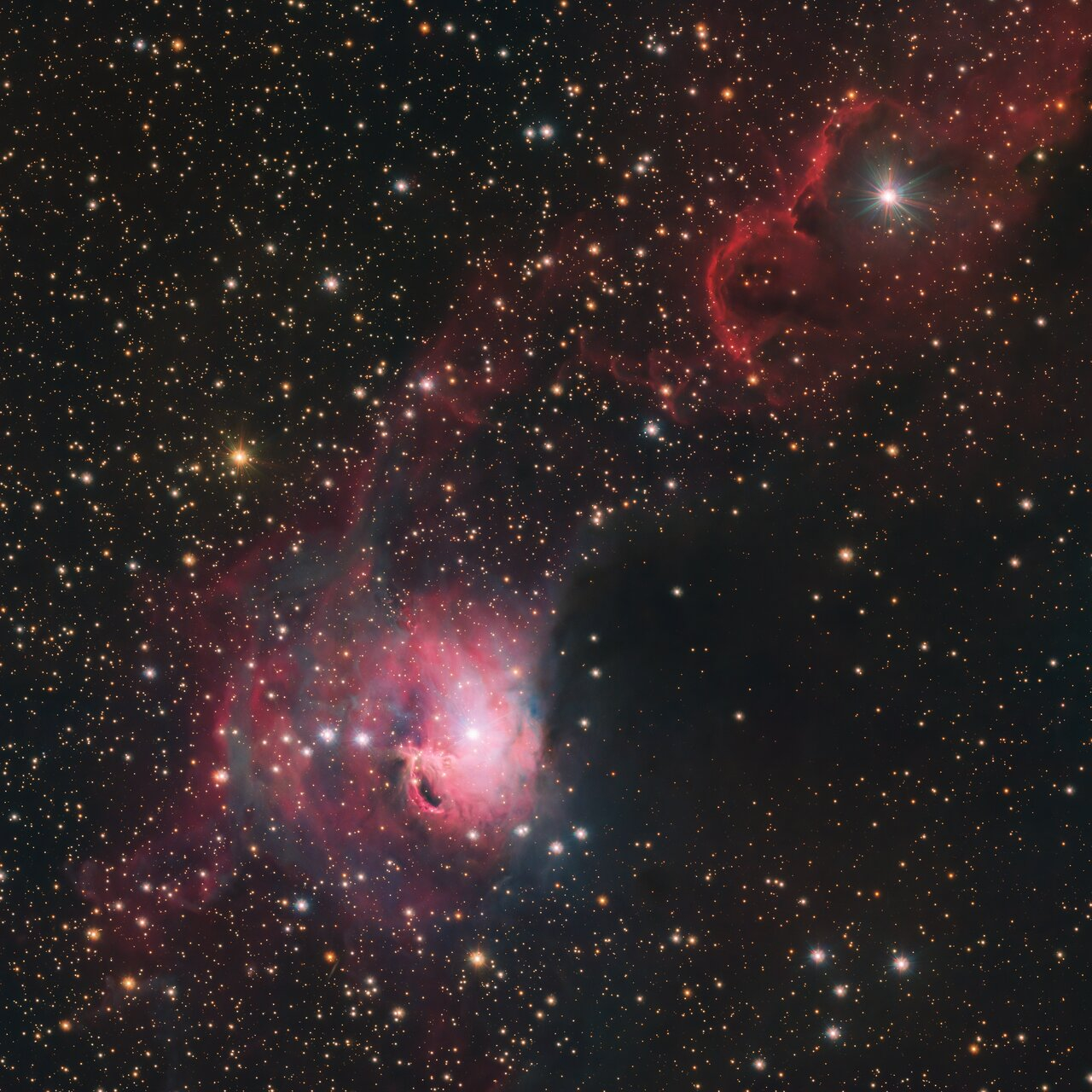
Wednesday, June 12, 2024: A bright pink koi fish has been spotted swimming across the southern sky. The European Southern Observatory's (ESO) VLT Survey Telescope (VST) snapped a beautiful new view of the Gum 3 nebula, located about 3,600 light-years from Earth. The nebula — an interstellar cloud of gas and dust that plays a key role in the life cycle of stars — appears to take the shape of a koi fish, varieties of carp that are known for their vibrant colors. — Samantha Mathewson
Read more: Cosmic 'koi fish' swims through starry sea in stunning telescope photo
Gateway under construction

Tuesday, June 11, 2024: The Artemis Program's future pitstop in lunar orbit, Gateway, is under construction in places all over the world. Here, a bulk of the space station's HALO (Habitation and Logistics Outpost) module hangs inside the Thales Alenia Space industrial facility in Turin, Italy. The component was photographed yesterday ahead of stress testing.
NASA astronauts dedicate Artemis 1 moon tree

Monday, June 11, 2024: A seed that flew around the moon and back will now grow into a tree at the U.S. Capitol in Washington, D.C.
On June 4, the four-person crew of NASA's Artemis 2 mission attended a dedication ceremony for an American sweetgum sapling grown from one of the Artemis 1 moon tree seeds. More than 1,000 seeds were among the payloads in the Orion spacecraft on its 26-day test flight mission that launched in November 2022.
"It represents so much of our mission," said former astronaut Pam Melroy, NASA's deputy administrator during the dedication ceremony. "It's a mission that touches every one, that everyone can enjoy, that everyone can be inspired by, but also one that we have an obligation to steward and protect to go forward. This is a mission whose impact will last, just like this tree, not just for decades, but for centuries."
Related: 'Most unique tree here:' Artemis Moon Tree planted at US Capitol
Starliner docks with the ISS
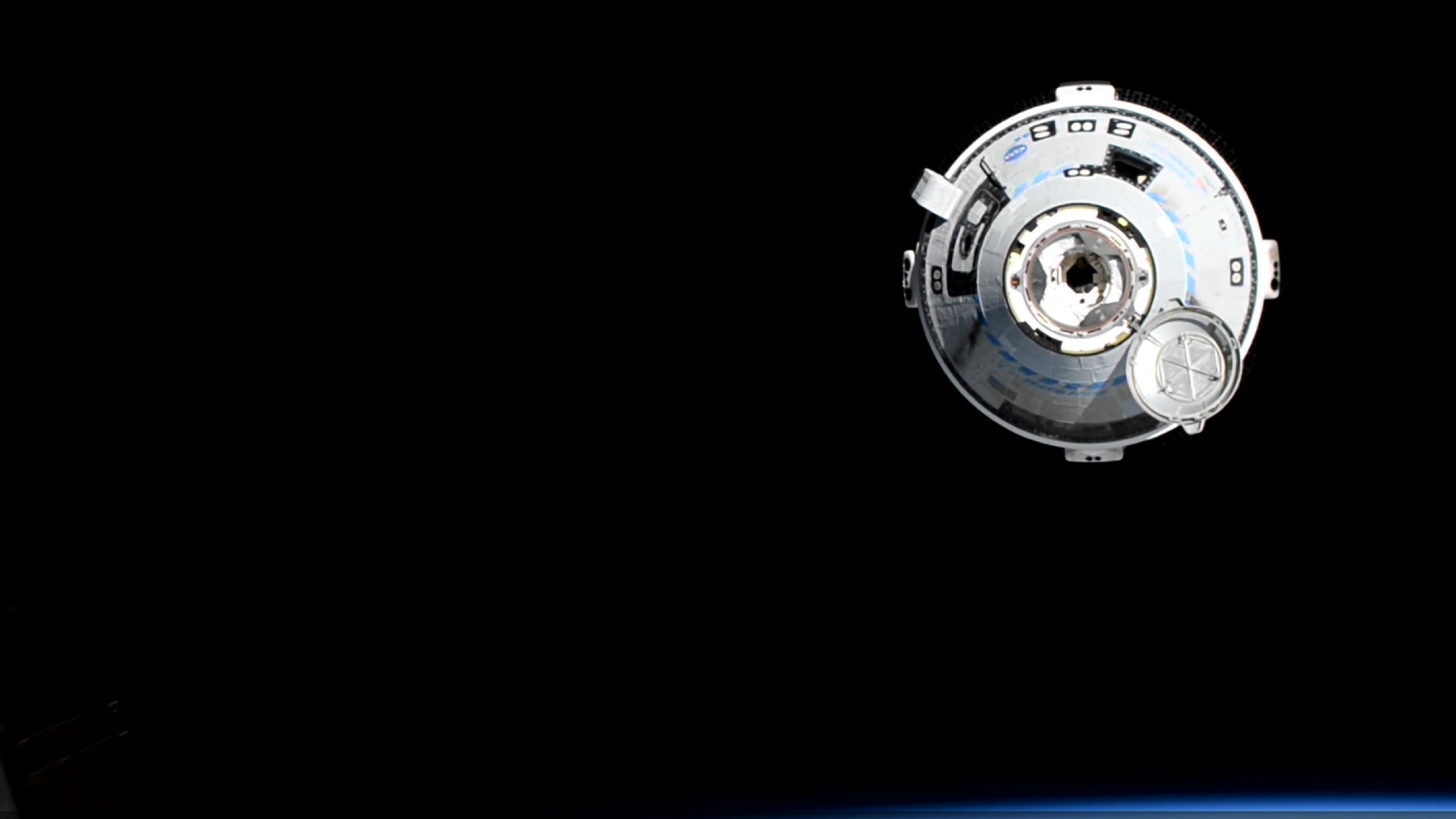
Friday, June 7, 2024: Boeing Starliner made it safely to the International Space Station on June 6.
This photograph shows the last seconds of Starliner's approach while the beleaguered spacecraft was autonomously piloting itself towards docking. Starliner docked with the orbiting lab at 1:34 p.m. EDT (1734 GMT), allowing NASA astronauts Butch Wilmore and Sunita Williams to begin their eight-day mission aboard the ISS.
The duo received a warm welcome as they floated into the station, receiving well-deserved hugs from the station's seven-person Expedition 71 crew made up of American astronauts and Russian cosmonauts.
Related: Boeing's 1st Starliner to carry astronauts arrives at ISS despite thruster malfunction
Boeing Starliner launches to ISS
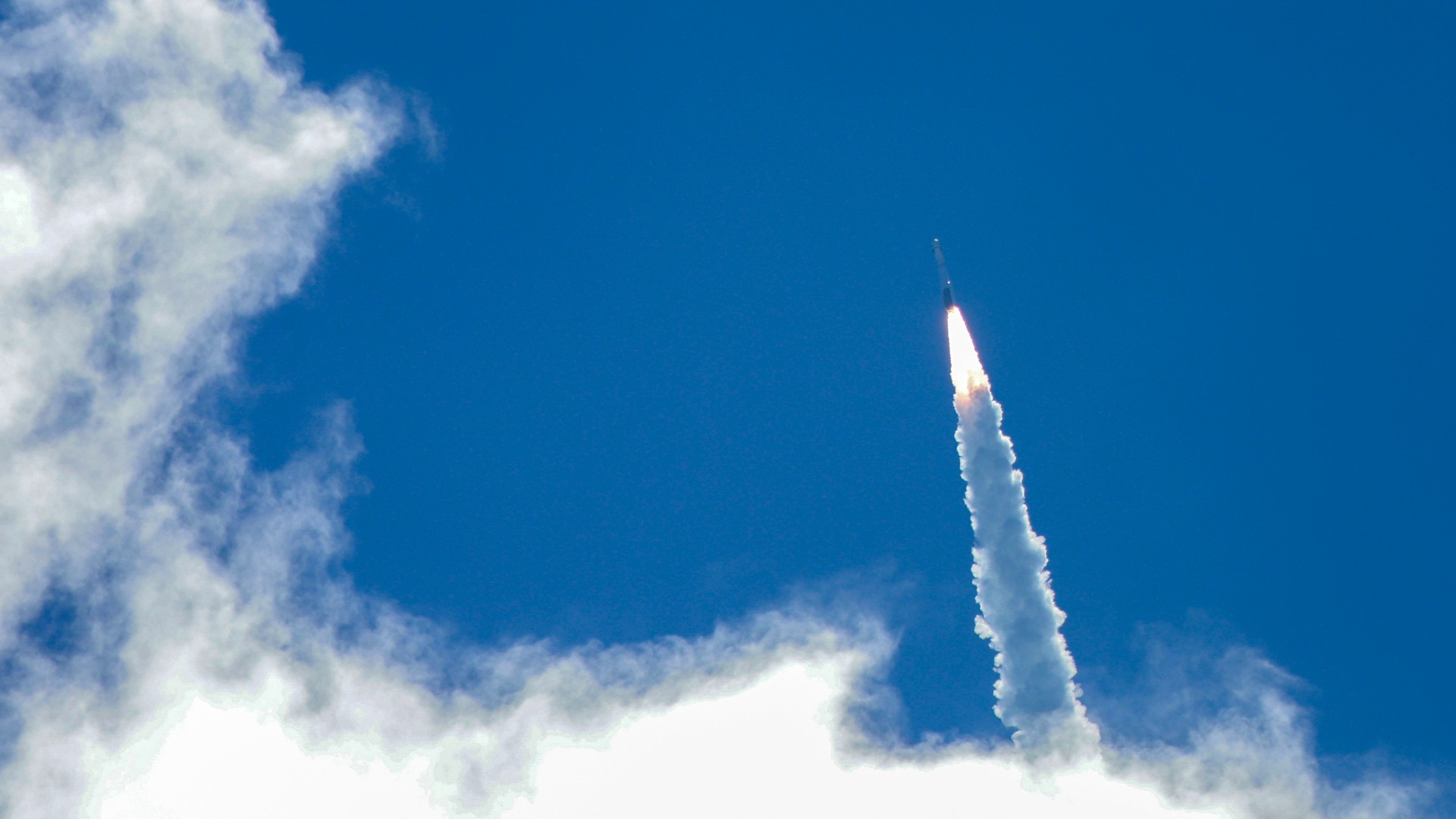
Wednesday, June 5, 2024: After multiple delays, Boeing's Starliner spacecraft is on its way to the International Space Station.
A United Launch Alliance Atlas V rocket launched today (June 5) at 10:52 a.m. EDT (1452 GMT) carrying Starliner and its crew, NASA astronauts Barry "Butch" Wilmore and Sunita "Suni" Williams.
The pair will arrive at the ISS on Thursday (June 6) around 12:15 p.m. EDT (1615 GMT), where they will conduct a roughly eight-day mission testing their spacecraft while aboard the orbital lab before returning to Earth in Starliner.
Read more: Boeing's Starliner launches astronauts for 1st time in historic liftoff (photos, video)
Auroras from space!
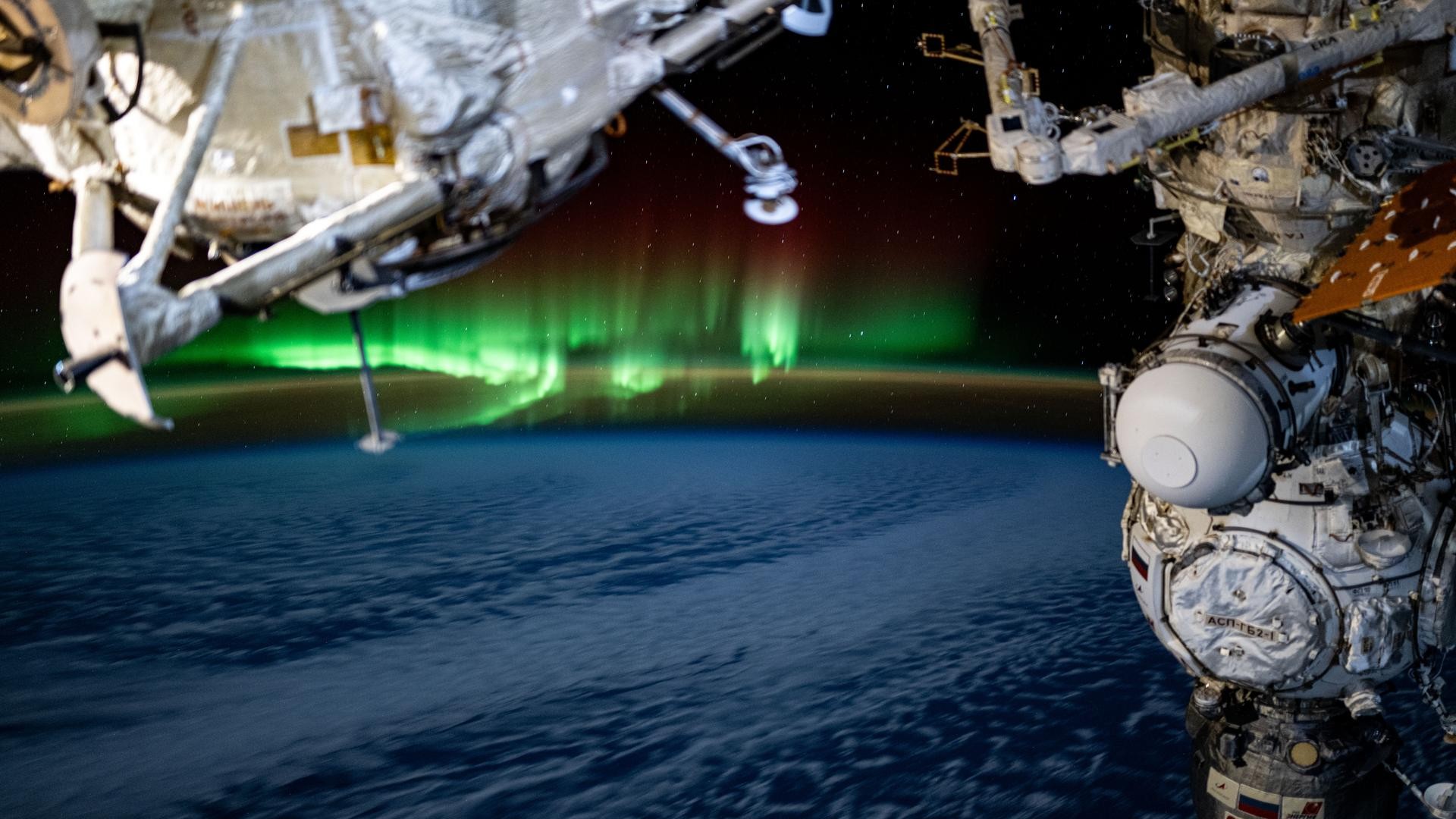
Tuesday, June 4, 2024: Auroras from space!
This photograph of the southern lights, or aurora australis, was taken by astronauts aboard the International Space Station as the orbital lab was some 266 miles (428 km) above and due south of Australia's island state of Tasmania.
Like the northern lights, the southern lights are created when charged particles from the sun interact with Earth's atmosphere. Our planet's magnetic field directs these particles towards the poles, which is why aurora phenomena are most often seen at higher latitudes near the Arctic and Antarctica.
Related: We may have just witnessed some of the strongest auroras in 500 years
Planetary alignment on June 1
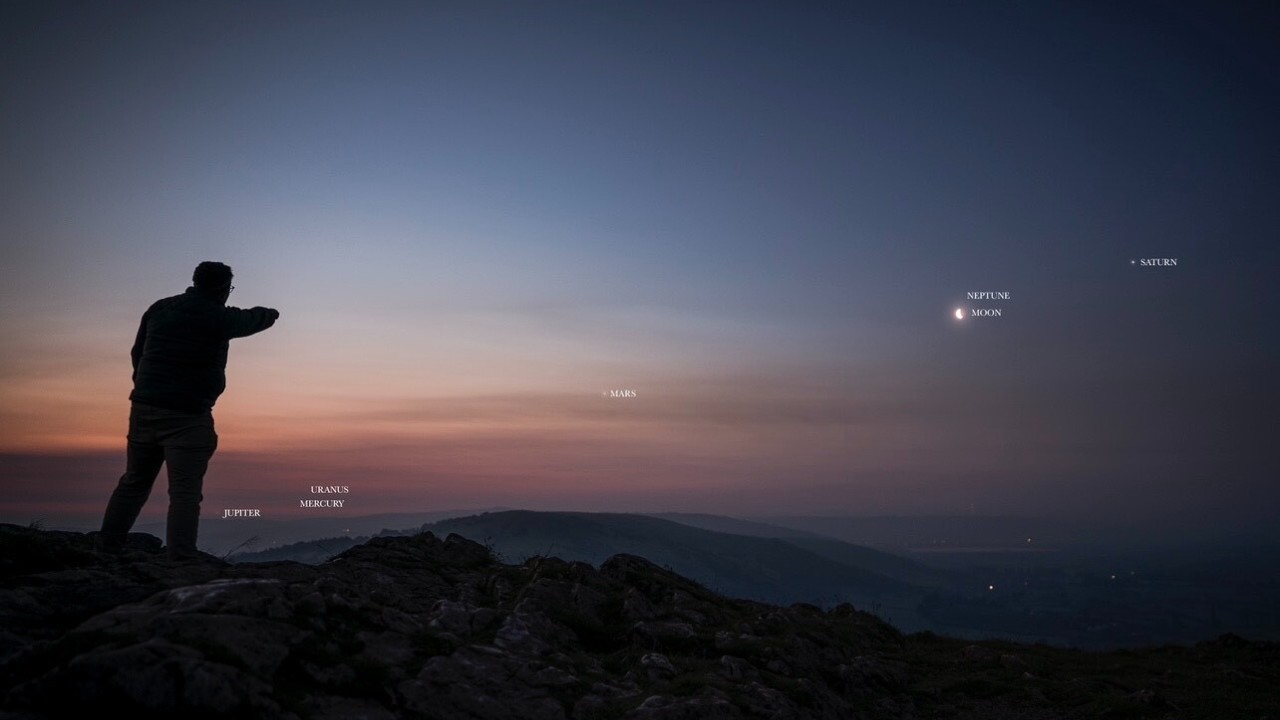
Monday, June 3, 2024: A planetary alignment visible on the morning of June 1, 2024 made for some excellent astrophotography.
Josh Dury captured this image from Crooks Peak in Somerset, England, taking multiple exposures and combining them into this one composite photograph.
"On Saturday morning when I captured this photograph, I was amazed to see Saturn, the moon and Mars. I needed to capture separate exposures in order to capture the fainter planets as well as Jupiter, Uranus and Mercury closer to the glare of the sun; this image is therefore a composite to capture this perspective," Dury wrote.
"It is quite amazing in taking a moment to step back and appreciate the sheer scale and perspective of our place in the universe," he added.
Related: Will a 'rare' lineup of planets be visible to the naked eye in the night sky on June 3?
Archives
Check out our Image of the Day Archives for more awesome photos.
Image of the Day 2020 Archive
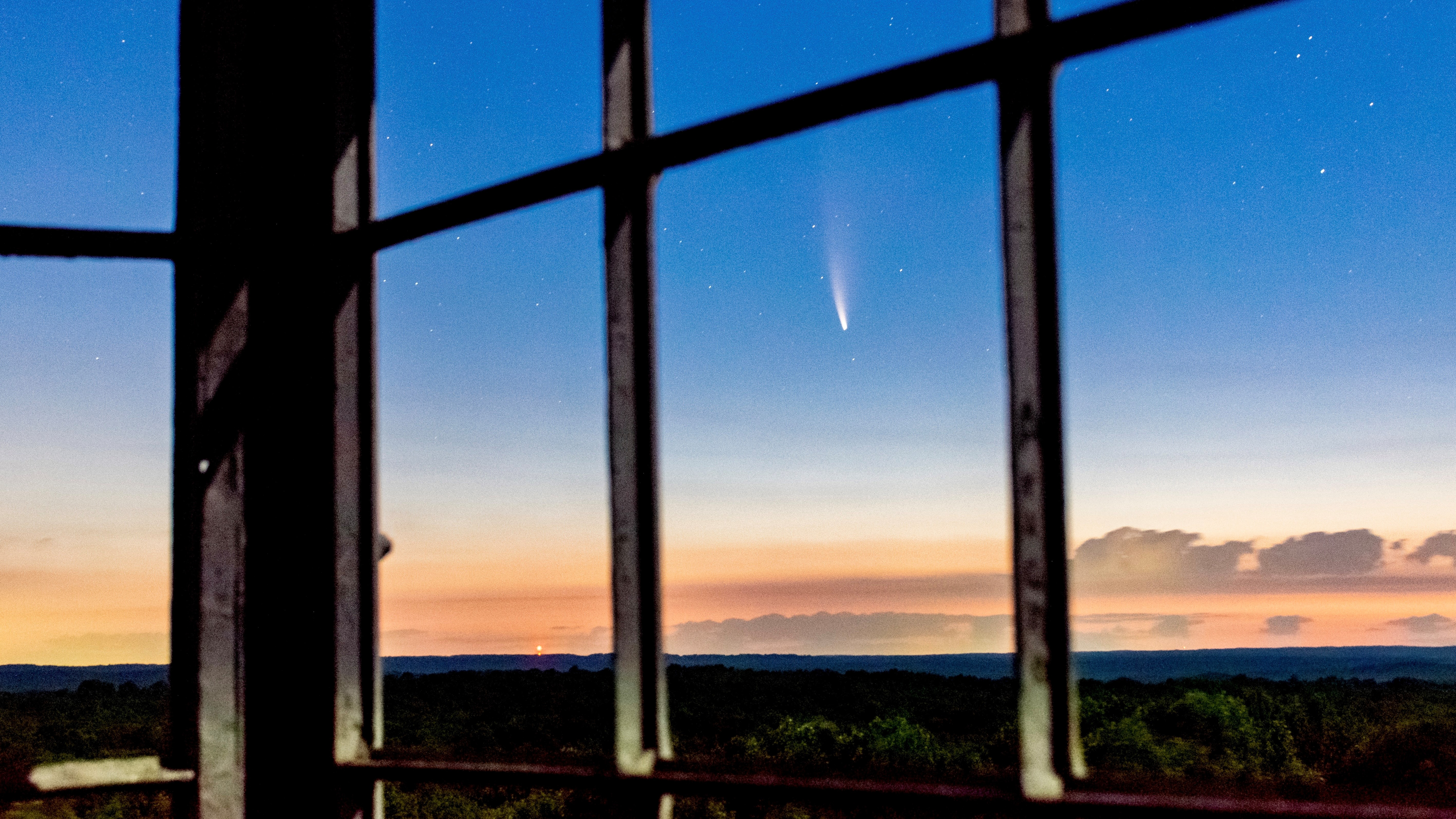
Image of the Day 2019 Archive
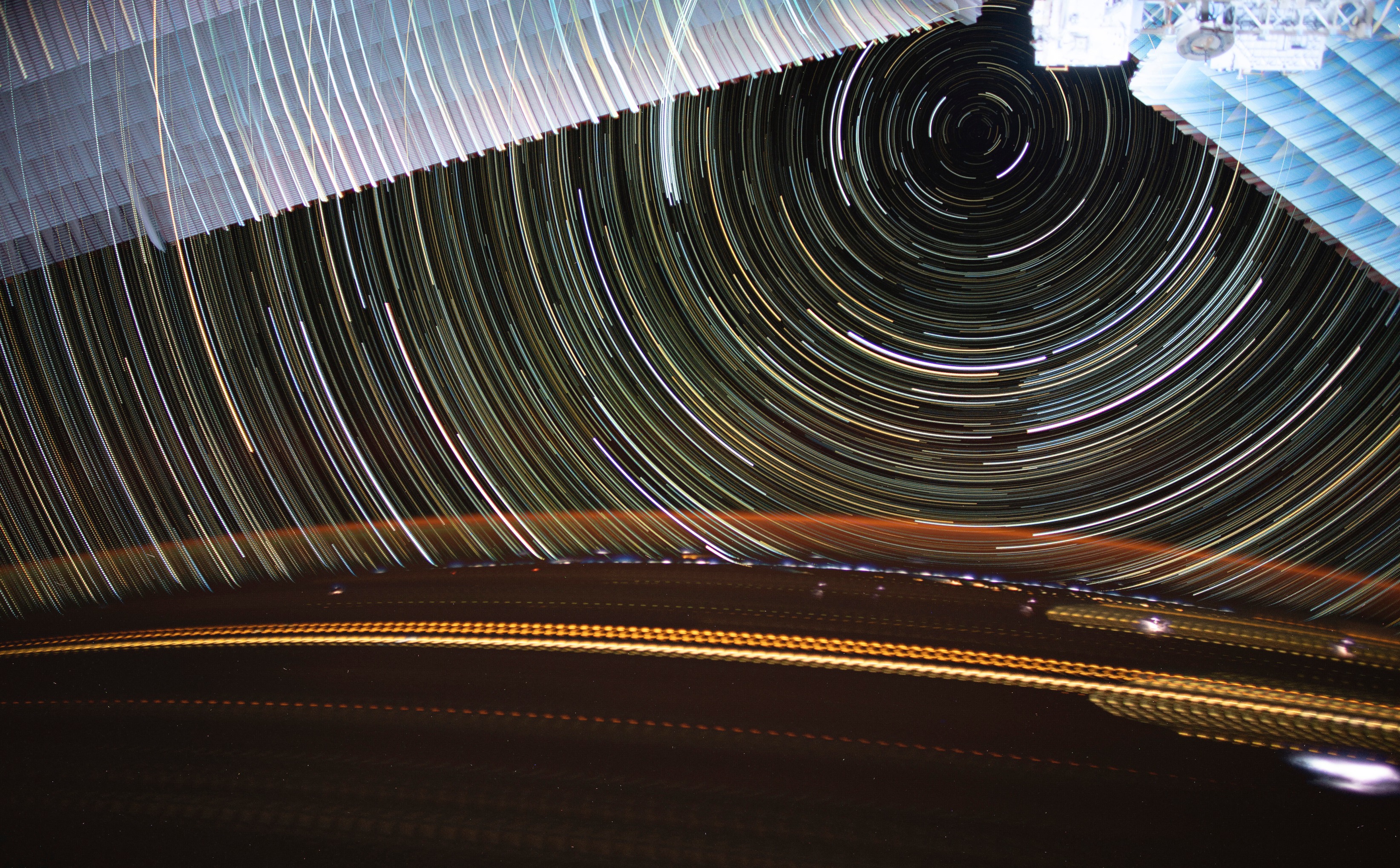
May >
Can't find the date you're looking for? It may have been a weekend or holiday, when we don't normally update our Image of the Day.
Click 'NEXT PAGE' below for May >
Join our Space Forums to keep talking space on the latest missions, night sky and more! And if you have a news tip, correction or comment, let us know at: community@space.com.

Space.com is the premier source of space exploration, innovation and astronomy news, chronicling (and celebrating) humanity's ongoing expansion across the final frontier. Originally founded in 1999, Space.com is, and always has been, the passion of writers and editors who are space fans and also trained journalists. Our current news team consists of Editor-in-Chief Tariq Malik; Editor Hanneke Weitering, Senior Space Writer Mike Wall; Senior Writer Meghan Bartels; Senior Writer Chelsea Gohd, Senior Writer Tereza Pultarova and Staff Writer Alexander Cox, focusing on e-commerce. Senior Producer Steve Spaleta oversees our space videos, with Diana Whitcroft as our Social Media Editor.









